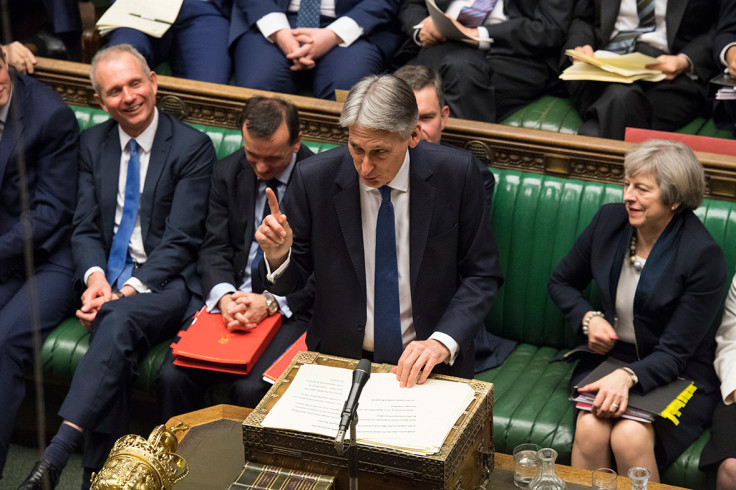Spring Budget 2017: Who are the self-employed with Philip Hammond's NIC tax hike
Chancellor hopes to improve public services by making self-employed pay on average 60p a week more.
Millions of self-employed workers will be hit by a 2% increase in their national insurance contributions (NICs) following an announcement made by Chancellor Philip Hammond in his Spring Budget 2017.
In his first Budget speech, Hammond said that Class 4 NICs will see a 1% increase to 10% in April 2018, with a further 1% increase in April 2019. Approximately 2.4 million workers will be affected.
The move will coincide with the scrapping of the current Class-2 self-employed NICs rates next April, previously announced by former chancellor, George Osborne.
Announcing the decision in the House of Commons, Hammond said: "The combination of the abolition of Class 2 and the Class 4 increases will raise £145m ($176m) a year for the UK's public services by 2021-22 after an average of around 60p a week will be provided per self-employed person."
Hammond said the NICs increase is justified as such "dramatically different treatment" of two people – employed and self-employed who earning essentially the same "undermines the fairness of the tax system". Hammond pointed out under the current system, an employee earning £32,000 will pay £6,170 of NICs, whereas a self-employed worker earning the equivalent amount will pay just £2,300.
He added: "Employed and self-employed alike use our public services in the same way, but they are not paying for them in the same way. The lower national insurance paid by the self-employed is forecast to cost our public finances over £5bn this year alone. That is not fair to the 85% of workers who are employees."

Who will the NICs tax hike affect?
According to the Office of National Statistics (ONS), there are now 4.8 million self-employed people working in the UK, just over 15% of all working people.
The tax hike mentioned in Hammond's Spring Budget affects Class 4 NIC self-employed workers earning between £8,060 and £43,000 a year.
The government defies a self-employed worker as someone who runs a business for themselves and takes responsibility for its success or failure. As well as running a business, there are also several others factors which determine if you are self-employed, such as how, where and when you do your work, whether you provide the main equipment to do your work or if you sell goods or services to make a profit, including through websites or apps.
Someone can be both employed and self-employed at the same time, for example if they work for an employer during the day and run their own business in the evenings.
As there are such a broad criteria of what self-employment is, there is no surprise that millions of people in the UK earn a living this way and covers a wide range of industry's from plasterers, freelance writers, people who have create mobile phone apps and farmers.
Almost all the money raised from #Budget2017 self-employment NICs changes will come from top half of households - and especially the richest pic.twitter.com/gS7MaKm7i0
— ResolutionFoundation (@resfoundation) March 8, 2017
Torsten Bell, of the Resolution Foundation think tank, said that one issue from Hammond's tax hike is that many modern self-employment has "very little in common with the 1990s stereotype of someone starting their own business with a white van, growing it and then employing others".
He added: "Yes, there are lots of plumbers, but there are also many people carrying out IT and accountancy work (not to mention banking) in offices where they work alongside employees doing pretty similar work but paying more tax. Indeed, the proportion of the self-employed that are themselves employers has halved since 2002 to just 11%. Workers in the gig economy itself generally don't set their own prices, a further sign that these aren't entrepreneurs in the normal sense."
The Liberal Democrats condemned hike as a tax on some of "Britain's hardest working people". Lib Dem Shadow Chancellor Susan Kramer said: "This is a tax on builders, taxi drivers and window cleaners, some of Britain's hardest working people. This hits the gig economy where people are already insecure and facing rising prices and job uncertainty."

© Copyright IBTimes 2024. All rights reserved.






